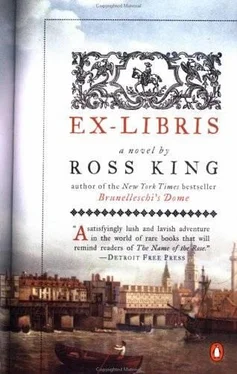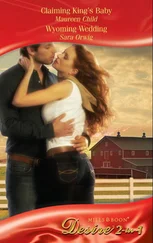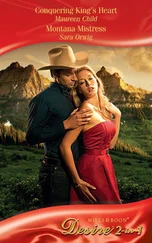'Come along, sir.' The driver's hands pressed my shoulders. 'Sir? Is everything all right?'
'Yes…' I barely heard him. I was pressing a shilling into his palm, not looking at him. 'Here-your money. Take it.' I was already walking towards the tavern. 'Now go.'
I heard his incredulous voice behind me: 'Sir?'
'Go!'
The mud sucked at my boots and I had to wrench them free at each step. But a few seconds later I was on solid ground, a bricked footpath, and the tavern rose before me. The door opened, throwing a triangle of light across the bricks. I was moving forward, squinting at the signboard. And, once again I saw the peeling portrait, clearer now: the head of a buck whose antlers had been painted gold. Above the antlers, three words: THE GOLDEN HORN.
It was the smell that struck me first, stale pipe and coal smoke mingled with sawdust and vermiculated wood daubed with pitch: the smell of a chamber that had seen neither broom nor beeswax, neither light nor air. Then, as I stepped inside and my pupils adapted to the dim light, I caught what became the most pervasive scent of all: coffee. For the Golden Horn wasn't a tavern after all, but a coffee-house.
The door swung shut behind me and I took a few more steps through the hearth smoke, casting about for a chair. A coffee-house was the last thing I expected to find in the heart of Alsatia, though I shouldn't really have been surprised, because even then, as far back as 1660, it seemed that a coffee-house stood in every street. I had only ever been inside one of them, the Greek's Head, an airy place filled with would-be actors and poets, and its congenial atmosphere could not possibly have prepared me for the smoke and gloom of the Golden Horn.
I found a seat, a three-legged stool, and sat down well away from the fire, which was drawing poorly.
'Your pleasure, sir?'
A short and pot-bellied waiter had appeared beside me, wiping his hands on a grubby apron. Behind him, two unsavoury-looking men sat in grave discussion, while behind them a lone man, the one who had entered a moment earlier, sat with his back to us, paring the calluses on his palms with a knife. As I looked around me at the crude furniture, the tiny hearth, the curled handbills yellowing on the walls, I wondered what tangled thread could possibly connect the Golden Horn to Pontifex Hall. All at once I doubted whether the patterns I was seeing-the cipher, the keyword, the strange verse, Strabo, now the Golden Horn coffee-house-had any significance beyond my own imagination. Was there a meaning behind this series of clues, or only chance and coincidence?
There was only one way to find out. I reached into my pocket and withdrew a penny. 'A dish of coffee, please.'
But no clues or mysterious powers revealed themselves; at least, not yet. By the time I finished the drink-a bitter, sludgy brew-the room had filled with more customers. A dozen-odd men had arrived, singly or in twos, each of them shabbily dressed, with scuffed boots and patched coats. Conversation was sporadic and quiet, punctuated by guttural laughter. The waiter moved back and forth from the counter to the tables, dishes clattering on his tray. Everyone seemed to be waiting for something to happen, but nothing did. I had been wrong about the significance of the name; it must have been a coincidence, nothing more. There were probably half a dozen taverns or coffee-houses called The Golden Horn, none of which had any connection with Pontifex Hall, least of all this one.
It was only after a few more minutes that I noticed the cabinet. It stood in the corner of the room, a small cabinet of rarities of the sort used by proprietors to attract custom. But from my seat I could see how this particular case was a sorrier collection than most, a witch's cupboard unlikely to convince even the most gullible patron. But I was curious, if not gullible, so I rose from my chair and crossed the floor.
The corner was darker than elsewhere, and no one else was paying the least bit of attention to the half-hearted display. Misspelled cards inscribed in a shaky hand identified a half-dozen uninspiring objects that seemed to cringe behind the glass. I leaned forward, squinting through my spectacles. A worm-eaten piece of cloth was identified as part of Edward the Confessor's shroud, while, beside it, an unremarkable wooden branch, half rotted, was reported as coming from a tree against which glanced the arrow that killed King William Rufus. According to its label, another even more undistinguished fragment had been chipped from the tomb of Sebert, King of the Saxons.
I almost burst out laughing at the sight of these bogus fragments of history, but then another of the cards caught my eye. Yellowed and curling, propped at the back of the cabinet, it identified a few square inches of frayed canvas as part of the main topsail of the Britomart , one of the ships in Sir Walter Raleigh's Orinoco expedition of 1617. I frowned and leaned forward again. I doubted the scrap was any more authentic than the others, but it reminded me of the patent in the coffin at Pontifex Hall, the one for the construction of the Philip Sidney .
And then I saw the last exhibit in the cabinet, by far the most gruesome. It, too, was at the back of the cabinet and looked like the severed head of a man. I started, then leaned forward again, goggling at this gruesome curio from what must have been some barbaric and heathen cult. It made a horrific sight. Matted brown hair hung over a tallow-coloured brow, beneath which two eyeballs goggled back, one pointed at the ceiling, the other at the floor. The left eyelid drooped, suggesting a wink, while the lips-grotesquely thick and painted red like a harlot's-were twisted into a cynical and knowing grin. But no sooner did I realise that the head was a fake, made of wax and velvet, than I was startled again, this time by the placard propped beneath the protuberant chin and inscribed in the same childish hand as the others:
The Head of an Automaton from
the Kingdom of Bohemia, once Belonging to
His Imperial Majesty, Rudolf II
By the time I crept back to my table, the windows had darkened and hearth smoke was wreathing about the joists. My hand shook as I held the dish to my lips. I wondered whether the grisly head was more authentic than the other objects. Had it somehow found its way here from Pontifex Hall? Via Cromwell's soldiers, perhaps, or some other band of looters?
I sat in the chair for another thirty minutes, feeling ever more exhausted and anxious, throwing the occasional glance at the waxwork skull that seemed to wink back at me, smug and knowing, from behind its pane of glass. The dish of coffee, far from soothing me, as I had hoped, seemed to have set my nerves on edge. When my waiter shuffled past, however, I managed to point at the cabinet and ask how the item had been acquired. But he claimed to know neither how nor when it might have arrived in the Golden Horn. Indeed, it almost seemed from his surprised and then puzzled expression that he had never so much as noticed the cabinet before, let alone its most horrific inhabitant.
I decided to return home, now regretting that I had dismissed my driver so quickly. The journey back to Fleet Street was bound to be dangerous. I would have to travel on foot, I knew, because it was unlikely that a hackney-coach would stray into this street, especially after dark. My mind filled with all sorts of unpleasant encounters, which I tried to thrust aside as I threaded my way to the door.
It was then that I made my last discovery of the evening. As I reached the door I noticed a handbill pasted on the wall beside the jamb. There was nothing unusual about it, because the walls of the coffee-house were papered with all sorts of these notices. From where I sat I had been able to read a score or two of flyblown playbills, tradesmen's cards, obscene ballads printed on fox-marked broadsheets, together with bits of graffiti, also obscene, either carved into the benches and tables or else daubed on to the beams. So I almost passed the handbill without a thought, but as I stood aside to allow others to enter through the doorway, the inscription, a murky copperplate engraving, attracted my eye:
Читать дальше












